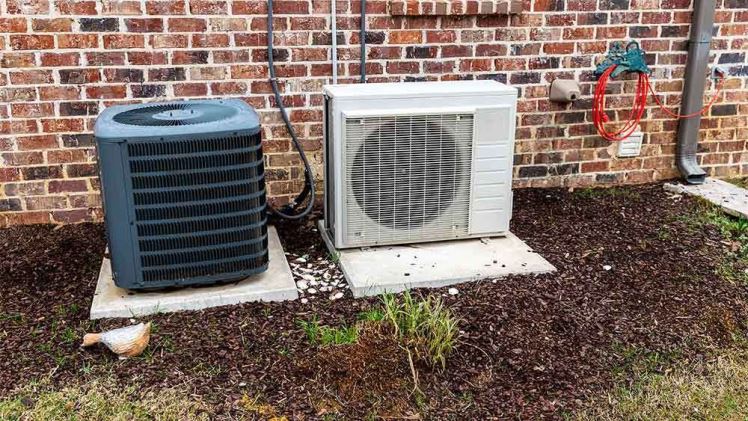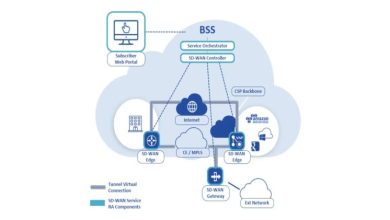AC Noise Reduction: Quieting a Noisy System

An essential part of your house, your air conditioning system offers relief and comfort during the sweltering summer months. On the other hand, an excessively noisy air conditioning system can be annoying and disturb your quiet time. We’ll look at common causes of noisy air conditioners in this blog post, along with practical methods for reducing AC noise so you can live in a more peaceful and quiet space.
Typical Reasons for AC Noise
Prior to discussing AC noise reduction strategies, it’s critical to comprehend the possible sources of noise in your HVAC system:
- Blower Fan: Your home’s air circulation system is the blower fan. It has the potential to make a loud, bothersome noise if it becomes loose, unbalanced, or damaged.
- Compressor Noise: The central component of your air conditioning system, the compressor, can produce a loud buzzing or humming noise, especially when it is first starting up.
- Ductwork: Air turbulence and vibrations from damaged or poorly designed ductwork can produce rattling or banging sounds.
- Refrigerant Flow: The system’s refrigerant flow may cause gurgling or hissing sounds.
- Vibrations: AC units have the potential to create vibrations that rattling or humming sound the surrounding structure or components.
- Loose Fasteners: Your AC system may experience rattling sounds and vibrations as a result of loose screws, bolts, and other fasteners coming loose over time.
Techniques for Reducing AC Noise
Identifying the precise source of the noise and putting targeted solutions in place are necessary steps in reducing AC noise. Here are a few practical methods for reducing noise from an air conditioning unit:
- Continual Upkeep
In order to avoid potential problems that could result in noisy operation, regular maintenance is crucial. Make an appointment with a qualified HVAC repair Hendersonville for yearly or biannual maintenance checks. The technician can tighten loose fasteners, inspect, clean, and lubricate parts during these visits, and address any possible sources of noise before they become serious issues.
- Adjust Any Loose Parts
Check the area around your AC unit for any loose bolts, screws, or other fasteners as part of your routine maintenance. To stop the rattling sounds and lessen vibrations, tighten them.
- Swap Out or Fix the Ducting
Noise transmission may be facilitated by ductwork that is ill-insulated or damaged. Check your ducts for damage, leaks, and loose connections. To lessen the transmission of noise, seal any gaps and think about insulating your ducts.
- Sound-absorbing Cabinets
Consider erecting barriers or soundproof enclosures around outdoor air conditioning units. Noise can be absorbed or blocked by these enclosures, lessening its effect on the interior of your house. For advice on the best soundproofing options for your particular unit, speak with an HVAC specialist.
- Switch to a More Silent Model
Consider switching to a newer, quieter model of air conditioner if your current one is old and noisy all the time. In order to reduce operating noise, modern AC systems are built with features like variable-speed fans and insulated compressor compartments.
- Make Use of Soundproofing Materials
Soundproofing materials can help you further reduce the noise from your indoor air conditioning system. In places like living rooms and bedrooms where noise is a major nuisance, install soundproof curtains or acoustic panels. These substances have the ability to either block or absorb sound waves, making the space quieter.
- Ensure Correct Refrigerant Levels
Your air conditioning system may make more noise as a result of working harder due to low refrigerant levels. Plan on doing routine top-offs and checks of the refrigerant to guarantee peak efficiency and minimize noise from the system being overworked.
- Deal with Noise from Compressors
Noise from compressors can be especially annoying. If the location of your compressor is close to a living area, you might want to construct a soundproof enclosure around it. Reducing noise during startup can also be achieved by planning routine maintenance to keep the compressor in good working order.
- Place Isolators for Vibration
Noise from your air conditioner may vibrate into the adjacent building. Installing vibration isolators or rubber pads beneath the unit’s feet could help lessen this impact. By absorbing vibrations, these isolators lessen the transmission of noise.
- Improve the Insulation
Your home’s insulation can help block out outside noise, including noise from your air conditioner. Make sure your windows, ceiling, and walls are adequately insulated to block out unwanted noises.
- Look for Leaks in the Refrigerator
Your air conditioning system’s hissing or gurgling noises may be signs of refrigerant leaks. Not only does addressing these leaks help minimize noise, but it also increases the effectiveness of your air conditioning unit.
- Speak with an expert in HVAC
Speak with an HVAC expert if you’re unclear about the cause of the noise coming from your air conditioner or the best ways to reduce it. They are able to conduct a comprehensive examination of your system, identify the problem, and suggest suitable noise-cancelling actions.
In Summary
Even though a loud air conditioner can be very annoying, it doesn’t have to ruin your comfort and tranquility at home. You can have a more peaceful and quiet home by addressing the particular noise sources and putting targeted solutions in place. In your quest for reducing AC noise, regular maintenance, soundproofing materials, vibration isolators, and expert advice are helpful resources. Even on the hottest summer days, you can maintain a calm and cool environment in your house with the appropriate strategy. Learn more about NexGen HVAC and their expertise in creating a quieter and more comfortable living space.


